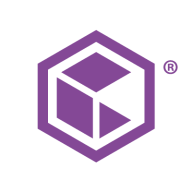

Find out what your peers are saying about Veeam Software, Commvault, Acronis and others in SaaS Backup.
| Product | Market Share (%) |
|---|---|
| Commvault Cloud | 6.1% |
| Keepit | 3.4% |
| Other | 90.5% |

| Company Size | Count |
|---|---|
| Small Business | 57 |
| Midsize Enterprise | 24 |
| Large Enterprise | 82 |
Commvault Cloud is the ultimate cyber resilience platform built to meet the demands of the hybrid
enterprise. Beyond its core functionality of data backup and recovery across diverse workloads, including applications, databases, virtual machines, and files, Commvault Cloud stands out as a robust defense against ransomware. Going beyond backup, the platform integrates advanced data security features such as encryption, access control, and threat detection, safeguarding against unauthorized access and cyber threats.
With tools for data management, classification, and migration, businesses can optimize storage costs, enhance accessibility, and comply with regulations seamlessly. Boasting cloud integration with major providers like AWS, Azure, and Google Cloud, Commvault Cloud leverages the scalability and flexibility of the cloud for comprehensive data protection and management. The platform's automation capabilities streamline tasks, and its reporting and analytics features provide valuable insights into data usage, potential risks, and optimization strategies. Commvault Cloud is not just a security tool; it is a key component of cyber resilience, enabling organizations to not only protect against cyberattacks but also recover swiftly and minimize the impact of incidents. Elevate your cyber resilience strategy with Commvault Cloud.
Keepit is a comprehensive data protection and backup solution that ensures the safety and security of your valuable business data. With its user-friendly interface and advanced features, Keepit offers a seamless and efficient way to protect your critical files and applications.
One of the key features of Keepit is its automatic and continuous backup capability. It constantly monitors your data and automatically backs it up in real-time, ensuring that no important information is lost. This eliminates the need for manual backups and provides peace of mind knowing that your data is always protected.
Keepit also offers unlimited storage capacity, allowing you to store as much data as you need without worrying about running out of space. This is particularly beneficial for businesses with large amounts of data or those that are rapidly growing.
Another notable feature of Keepit is its advanced search and restore functionality. With just a few clicks, you can easily search for specific files or folders and restore them to their original location or a different location of your choice. This saves valuable time and effort in recovering lost or deleted data.
Furthermore, Keepit provides robust security measures to ensure the confidentiality and integrity of your data. It uses state-of-the-art encryption technology to protect your files during transmission and storage, making it virtually impossible for unauthorized individuals to access your data.
In addition to its data protection features, Keepit also offers seamless integration with popular cloud storage platforms such as Microsoft 365, Google Workspace, and Salesforce. This allows you to easily backup and restore data from these platforms, ensuring that all your critical business data is protected.
We monitor all SaaS Backup reviews to prevent fraudulent reviews and keep review quality high. We do not post reviews by company employees or direct competitors. We validate each review for authenticity via cross-reference with LinkedIn, and personal follow-up with the reviewer when necessary.